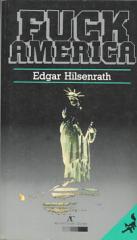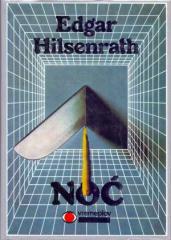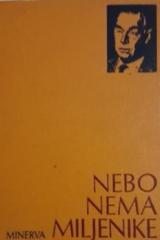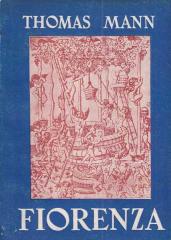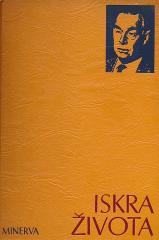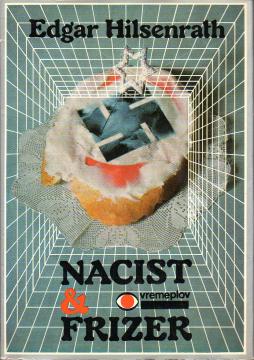
Nacist i frizer
„Nacista i frizer“ (1971) Edgara Hilzenrata je groteskni roman koji provokativno obrađuje Holokaust, ispričan iz perspektive počinioca, Maksa Šulca, esesovca i masovnog ubice.
Roman prati njegov život od detinjstva u malom šleskom gradu, gde se sprijateljuje sa Icigom Finkelštajnom, plavookim Jevrejinom. Uprkos njihovom prijateljstvu, Maks se pridružuje nacistima, postaje brutalni ubica u koncentracionom logoru Laubvalde i učestvuje u pogubljenju Icigove porodice. Nakon rata, da bi izbegao kaznu, Maks preuzima Icigov identitet, uključujući i njegovu profesiju frizera, i beži u Izrael, gde postaje istaknuti građanin i cionista.
Hilzenrat koristi crni humor i satiru da bi razotkrio apsurdnost i banalnost zla, dovodeći u pitanje klišee o nacistima i Jevrejima. Maks, uprkos tome što njegov izgled podseća na antisemitske stereotipe, postaje „Jevrejin“, dok Icig, plavokosi Jevrejin, postaje žrtva. Roman istražuje teme krivice, identiteta i morala, a da ne nudi jednostavne odgovore. Hilzenrat, preživeli Holokaust, izaziva zaborav koristeći groteskno da bi istakao svakodnevnu prirodu zločina. Knjiga je izazvala kontroverzu u Nemačkoj, gde je objavljena tek 1977. godine, nakon uspeha u SAD 1971. godine. Kritičari hvale njenu jezičku snagu i poetiku, ali i osporavaju njen provokativni ton.
Jedan primerak je u ponudi
